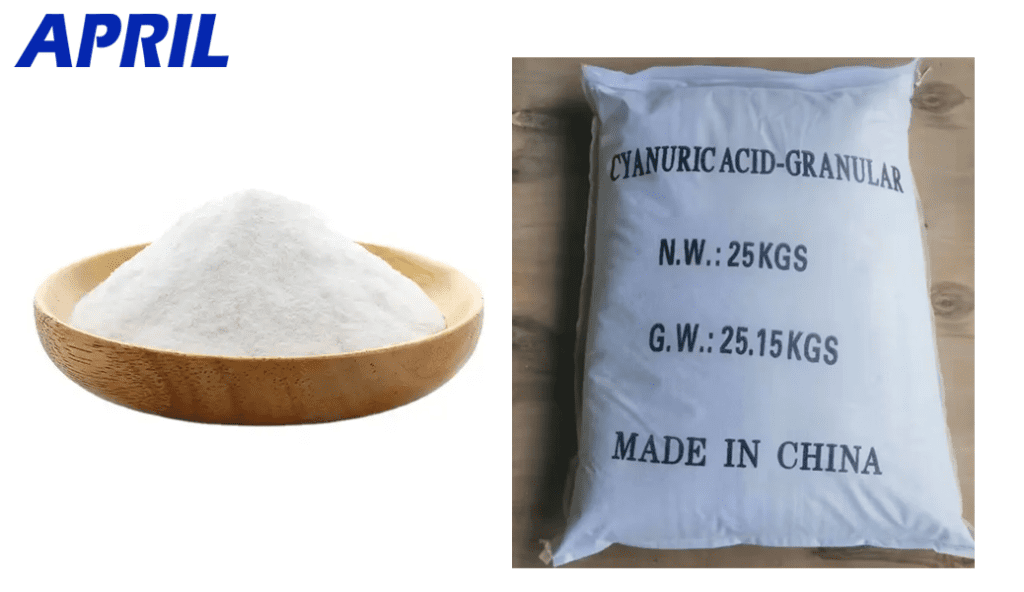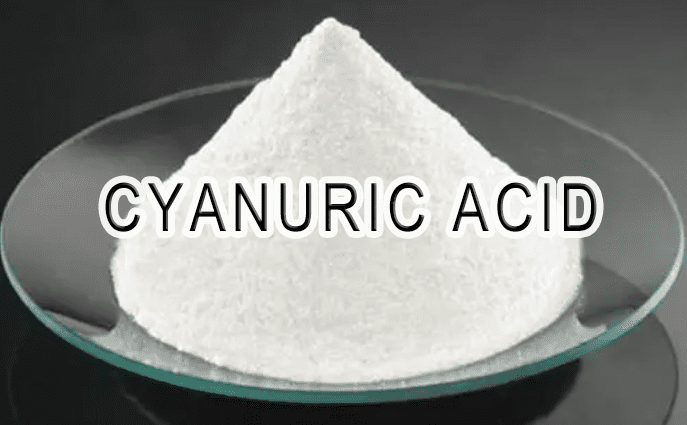
Introduction:
Cyanuric acid, a white crystalline substance, is an essential chemical compound within the realm of chemistry and industry. Its unique properties and versatile applications have made it a valuable component in various sectors. This compound is known for its stability, solubility, and utility in a range of processes. Understanding its classification, advantages, and applications provides insight into its significance in diverse fields.
Formula: C3H3N3O3
Soluble in: Water
Melting point: 320–360 °C
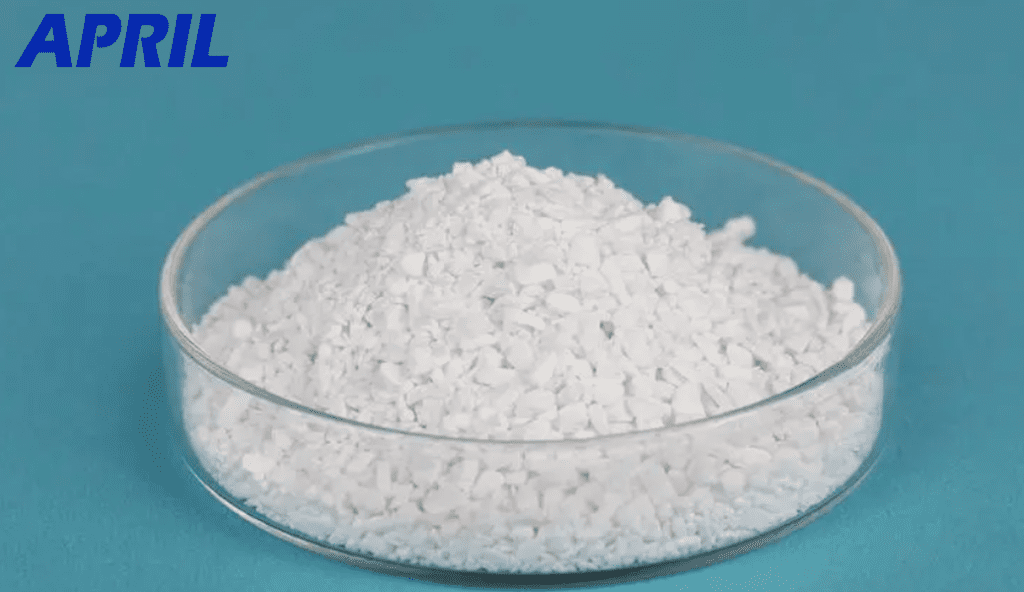
Advantages:
Stabilizer for Chlorine Compounds: One of the primary advantages of cyanuric acid is its role as a stabilizer for chlorine-based disinfectants, such as chlorine tablets and granules. When added to swimming pools and spas, it forms a protective barrier around chlorine molecules, extending their effectiveness and preventing rapid degradation due to sunlight exposure. This helps maintain proper sanitation levels in water bodies.
Temperature Stability: Cyanuric acid is thermally stable, which makes it suitable for applications involving high temperatures, such as in industrial processes. Its ability to withstand heat without decomposing enhances its usefulness in various manufacturing procedures.
Reduced Chlorine Consumption: By acting as a chlorine stabilizer, cyanuric acid reduces the rate at which chlorine dissipates in water due to sunlight, leading to less frequent addition of chlorine-based chemicals. This not only saves on chemical costs but also minimizes the environmental impact associated with chlorine consumption.
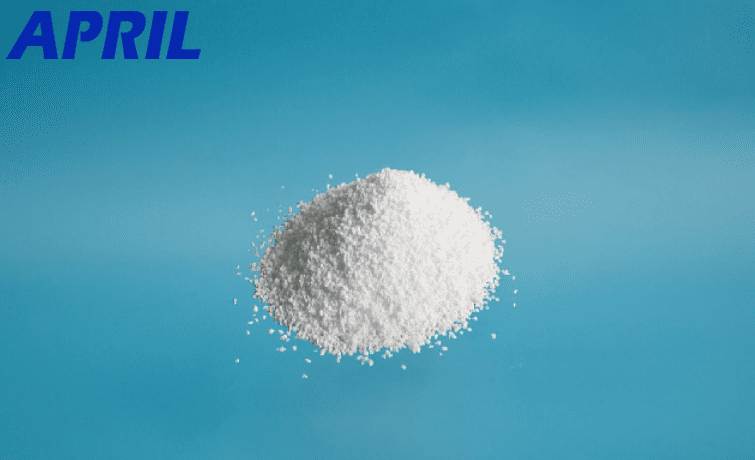
Applications/Uses:
Pool and Spa Maintenance: Cyanuric acid is extensively used in the maintenance of swimming pools and spas. It helps maintain a consistent level of chlorine in the water, ensuring effective disinfection while reducing the frequency of chlorine addition.
Water Treatment: In addition to its role in recreational water bodies, cyanuric acid finds applications in larger water treatment facilities. It aids in maintaining chlorine concentrations, preventing the need for frequent rechlorination.
Industrial Processes: Due to its thermal stability, cyanuric acid is used as a component in various industrial processes, including the production of plastics, resins, and coatings. Its incorporation into these materials enhances their durability and performance.
Agricultural Sector: Cyanuric acid is utilized in agriculture as a nitrogen stabilizer in fertilizers. It prevents the rapid release of nitrogen from the soil, improving its availability to plants and reducing nitrogen runoff, which can lead to environmental pollution.
Synthetic Chemistry: This compound serves as a building block in synthetic chemistry, contributing to the creation of specialized chemicals and compounds used in diverse fields.
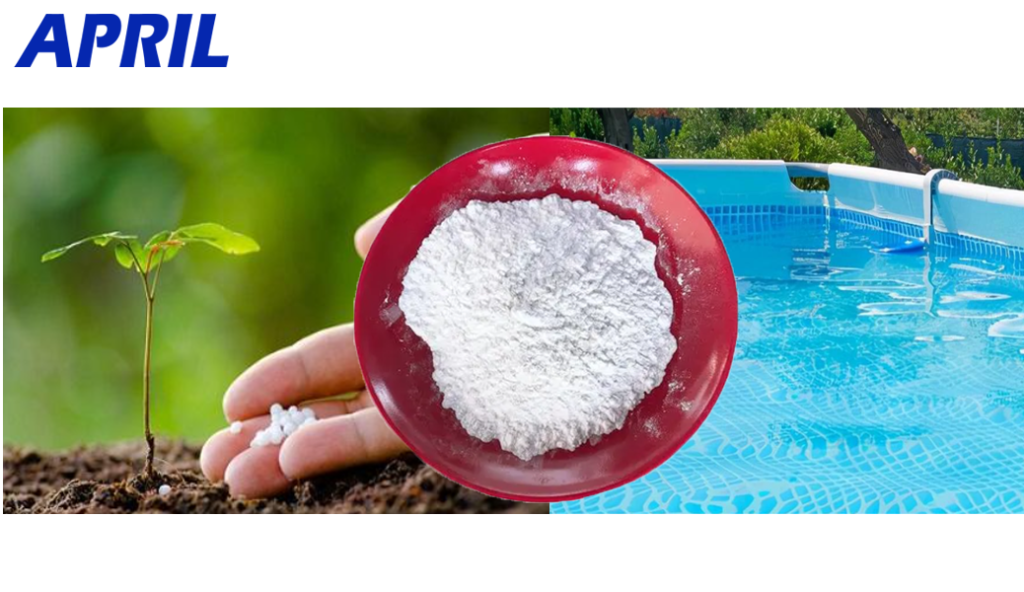
In conclusion, cyanuric acid stands as a versatile and essential compound with a range of applications. Its role in stabilizing chlorine compounds, thermal stability, and diverse uses across various industries underline its significance in both consumer and industrial contexts.
